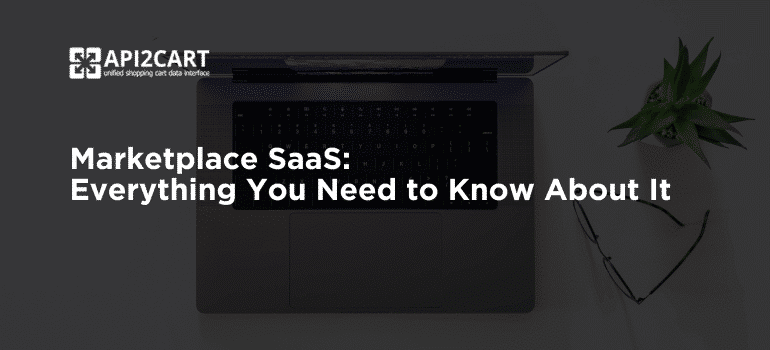
In today’s fast-paced digital economy, software developers are constantly seeking efficient ways to distribute, monetize, and manage their applications. A Marketplace SaaS (Software as a Service) platform provides a seamless solution by offering developers a centralized hub to showcase, sell, and manage their software products while handling essential operations like payments, licensing, and customer support.
As businesses increasingly rely on cloud-based solutions, the demand for developer-friendly marketplaces has surged. These platforms not only streamline the buying and selling process but also enhance visibility and credibility for developers by connecting them with a global customer base. Whether targeting enterprise clients or individual users, a Marketplace SaaS model offers a scalable and cost-effective approach to software distribution.
This article explores the key benefits, challenges, and best practices for leveraging Marketplace SaaS solutions as a software developer. From reducing operational overhead to tapping into a wider audience, we’ll examine how this model can transform the way developers bring their software to market.
What is Marketplace SaaS?
Marketplace SaaS (Software as a Service) for software developers is a cloud-based platform that allows developers to create, develop, and manage their software products. It provides a centralized hub where developers can list their applications, handle transactions, manage licensing, and offer customer support, all without needing to build and maintain their own sales infrastructure.
Key Features of Marketplace SaaS:
- Software Distribution – Developers can publish their software for customers to discover and purchase;
- Monetization & Payments – Built-in payment processing, subscriptions, and licensing options;
- Customer Management – Tools for handling customer inquiries, feedback, and support.
- Scalability – Allows developers to reach a global audience without worrying about hosting and infrastructure;
- Integration and APIs – Many marketplaces provide APIs for seamless integration with development workflows.

Benefits of using a Marketplace SaaS
A Marketplace SaaS provides software developers with a streamlined way to distribute, monetize, and integrate their applications. Here are the key benefits:
- Easier Distribution and Market Access:
- Instant access to a large user base without building a standalone sales platform;
- Global reach through an established marketplace ecosystem;
- Reduced marketing costs, as the marketplace handles promotion and visibility.
- Simplified Monetization and Payments:
- Multiple revenue models: Subscription, one-time purchase, usage-based pricing;
- Built-in payment processing, including tax compliance and invoicing;
- Marketplaces often handle refunds, fraud prevention, and financial reporting.
- Hassle-Free Hosting and Maintenance:
- Fully managed cloud infrastructure, reducing operational overhead;
- Automatic updates, scaling, and security patches provided by the SaaS marketplace;
- Developers can focus on building features instead of managing servers.
- Seamless Integration with Other Services:
- API-driven integration with CRM, analytics, billing, and authentication systems;
- Easier adoption for enterprise customers who need plug-and-play software;
- Marketplace tools for automated deployments, testing, and versioning.
- Security, Compliance and Trust:
- Pre-built security measures like data encryption, access control, and compliance frameworks (GDPR, SOC 2);
- Customers trust verified software from known marketplaces over independent solutions;
- SSO, OAuth, and secure authentication ensure safe user management.
- Faster Go-To-Market and Scaling:
- Avoids the need for building a standalone storefront or custom licensing model;
- Faster onboarding and deployment using marketplace tools;
- Ability to scale automatically as demand grows.
- Reduced Customer Support & Maintenance Effort:
- Marketplace handles customer inquiries, reducing developer workload;
- Standardized documentation, knowledge bases, and FAQs improve self-service support;
- Faster issue resolution through built-in support tools.
- Enterprise-Level Sales Opportunities:
- Easier to attract large businesses that rely on marketplace integrations;
- Built-in compliance, billing, and legal frameworks make enterprise adoption seamless;
- Opportunities for partnerships, cross-selling, and upselling within the marketplace.
Marketplace SaaS platforms provide software developers with a powerful way to distribute, monetize, and scale their applications efficiently. By leveraging the marketplace’s built-in infrastructure, developers can focus on innovation rather than dealing with hosting, security, and payment processing. The ease of integration with third-party tools, enterprise-level trust, and global reach make these platforms an attractive option for businesses looking to grow their software solutions.

Challenges and Limitations of Marketplace SaaS
When considering a SaaS Marketplace for distributing and managing software, developers must be aware of various challenges and limitations. While SaaS marketplaces provide many advantages, such as easier distribution and wider reach, there are also some obstacles to consider. Here’s a breakdown of the key challenges and limitations developers may face when using these platforms:
- Platform Dependency:
- Lack of Control: When you use a marketplace, you are dependent on the platform for your product’s distribution and sales. Any changes to the platform’s policies, fees, or structure could directly impact your revenue or user base;
- Market Shifts: Platforms occasionally change their focus or algorithms, affecting how products are discovered or ranked. For example, a shift in the marketplace's target audience or changes to its promotional policies could leave your product unnoticed.
- Limited Customer Data and Engagement:
- Reduced Direct Interaction: Many marketplaces act as intermediaries between developers and customers, which means developers may not have direct access to detailed customer data. This can limit insights into user behavior, preferences, and feedback, making it harder to improve products;
- Customer Support Management: Some marketplaces handle customer support, which might limit how developers can manage user issues or tailor their support experience. If a customer has a negative experience with the marketplace’s support, it could reflect poorly on the developer's product.
- Strict Guidelines and Regulations:
- Compliance with Platform Policies: Each SaaS marketplace has its own set of guidelines, rules, and regulations that developers must adhere to. Failure to meet these standards can result in product removal or suspension from the platform;
- Security and Privacy Requirements: Marketplaces often enforce strict security protocols and data privacy regulations. Developers may need to invest time and resources to ensure their products comply with these requirements, especially if they deal with sensitive user data.
- Limited Customization:
- Branding Restrictions: Many marketplaces offer limited branding and customization options for product listings, which can make it difficult for developers to present their software in a unique or personalized way. This can be frustrating for those who want to build a strong brand identity;
- No Control Over the Customer Journey: From initial discovery to purchase, the customer journey is largely dictated by the marketplace. This lack of control means developers may not be able to influence the customer experience as much as they would like.
- Data Ownership and Privacy Concerns:
- Limited Data Access: Most marketplaces restrict direct access to customer data, which could limit developers' ability to gather insights and build targeted marketing strategies;
- Privacy Regulations: Some platforms may not fully comply with data protection regulations (GDPR or CCPA), and developers could be held accountable if the platform fails to manage customer data correctly.
- Dependence on Marketplace Success:
- Platform Stability: If a marketplace experiences issues, such as downtime, bugs, or technical failures, it could negatively impact sales and customer satisfaction. Additionally, if the marketplace eventually shuts down, developers lose their product distribution channel;
- Platform Saturation: As the number of developers and products on the marketplace increases, it may become less effective at reaching potential customers, leading to lower sales for all participants.
- Long-term Sustainability:
- Shifting Business Models: Over time, SaaS marketplaces may evolve or shift their business models, changing how developers can sell or distribute their products. For instance, a platform might transition from offering a pure marketplace to a more curated, selective model, leaving some developers without a viable distribution channel;
- Market Dependence: Relying on a single marketplace for software distribution can put a developer in a vulnerable position. If the platform's audience no longer matches the developer’s target market, or if the platform experiences a significant decline in users, developers may struggle to adapt.
While Marketplace SaaS platforms offer tremendous opportunities for software developers, including ease of distribution, monetization, and access to a larger customer base, they also come with significant challenges. Developers must weigh the benefits against the potential downsides, such as high fees, reduced control, and competition, to determine whether using a marketplace aligns with their business goals. To succeed in a crowded marketplace, developers must strategically manage their product visibility, customer relations, and adapt to the constantly changing landscape of SaaS distribution.

Using API2Cart as a SaaS Solution for eCommerce Integration
Using API2Cart is particularly beneficial looking to integrate multiple eCommerce platforms with their applications, automate processes, and manage various business functions, including inventory, orders, shipping, and payments. Here's how developers can leverage API2Cart for Marketplace SaaS:
- Multi-platform Integration
- Simplified API Usage
- Retrieve product, order, and customer data from various platforms;
- Sync inventory and prices across multiple marketplaces in real-time;
- Automate order management, reducing manual intervention;
- Handle returns, refunds, and shipping status updates.
- Customization and Flexibility
- Custom business logic for syncing data;
- Building dashboards for reporting and analytics across multiple marketplaces;
- Supporting various payment gateways and shipping providers.
- Multi-currency support for global sales;
- Handling different languages and localizations;
- Providing custom discount rules or promotions.
- Error Handling and Monitoring
- Security
- Time-Saving Features
- Real-Time Data Sync
- Support for SaaS Product Development
API2Cart allows developers to integrate their SaaS solution with 60+ eCommerce platforms and marketplaces, including Shopify, Magento, WooCommerce, BigCommerce, OpenCart, PrestaShop, and others, at once. This provides a unified interface to interact with different eCommerce platforms, saving time on custom integrations and reducing the complexity of maintaining multiple connections.
API2Cart offers easy-to-use REST APIs for integration. As a software developer, you can leverage API2Cart's well-documented endpoints to:
Developers can customize the integration to suit specific business needs. API2Cart is versatile enough to handle:
With API2Cart, developers can scale the solution easily as business needs grow. They can integrate more platforms or add additional functionalities, such as:
API2Cart provides built-in tools to monitor API usage and handle errors effectively. This helps developers ensure that the integrations remain stable and consistent across platforms. Tools for logging and error notifications allow them to identify and fix issues in a timely manner.
API2Cart prioritizes security with features, including secure API keys and OAuth authentication, ensuring that all data exchanged between the marketplace platforms and the SaaS solution is protected.
By using API2Cart, developers save time on building custom integrations and can focus more on developing unique features for their SaaS product. API2Cart provides pre-built solutions that handle many of the repetitive tasks involved in connecting with different platforms.
API2Cart supports real-time synchronization of orders, products, and customer data, which is crucial for SaaS businesses looking to provide seamless experiences for users and merchants. This allows SaaS developers to build features like automatic stock updates, real-time order processing, and live sales analytics.
For developers building a Marketplace SaaS, API2Cart can enable them to quickly add marketplace management functionalities to their product, such as:
-
- Managing multiple store accounts from a central dashboard;
- Providing merchants with insights on sales and performance;
- Offering order processing and invoicing features for sellers.
For software developers working on Marketplace SaaS, API2Cart serves as a robust and scalable solution for integrating and managing multiple eCommerce platforms. It simplifies the development process by providing powerful APIs, saving time on custom integrations, and offering flexibility in how data is synchronized across different systems. If you have any additional questions, please schedule a FREE call with our experts. earn more about this seamless integration process by visiting SaaS API Connection to streamline your eCommerce connections.

Conclusion
Marketplace SaaS platforms present a unique opportunity for software developers to accelerate their growth, streamline operations, and reach a wider audience. By offering a centralized, cloud-based environment for distribution, monetization, and integration, these platforms remove many of the barriers traditionally faced by developers, such as infrastructure management, payment processing, and customer acquisition.
The ability to tap into an established user base, coupled with simplified tools for scalability, security, and support, enables developers to focus on creating innovative products rather than handling administrative tasks. Whether you're a startup looking for exposure or an established business aiming to scale, leveraging a Marketplace SaaS can help you maximize your software’s potential and drive long-term success in an increasingly competitive digital landscape.
If you're looking to enhance your SaaS business further, consider diving into this list of 6 must-read books for SaaS founders to sharpen your leadership and business development skills.
FAQs
1. API2Cart – a unified API solution that allows SaaS providers to connect their software with 60+ eCommerce platforms and marketplaces, including Shopify, Magento, Etsy, Wix, Shopee, TikTok Shop, and others - all through a single integration, saving time and reducing maintenance costs.
2. AWS (Amazon Web Services) – provides scalable infrastructure, hosting and security of SaaS applications.
3. Microsoft Azure – is a cloud computing, data management, and DevOps service for SaaS deployment.
4. Google Cloud Platform – supports SaaS scaling, analytics, and API management.
5. Zapier or Make (Integromat) – allow the simple automation and integration of SaaS.
These tools and platforms are used to accelerate SaaS development, make sure that the performance is secure and scalable, and to ease the multi-system integration.



